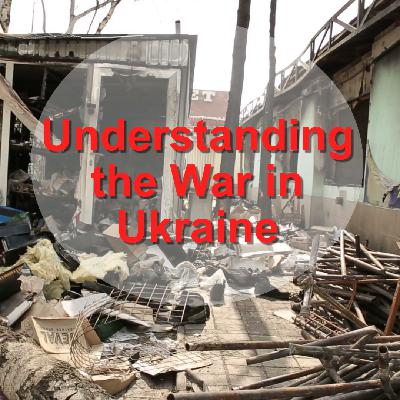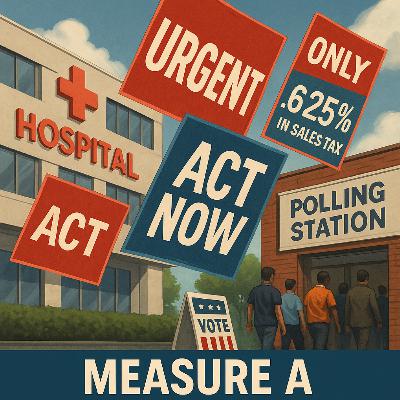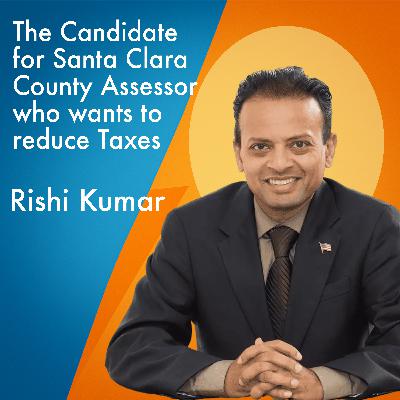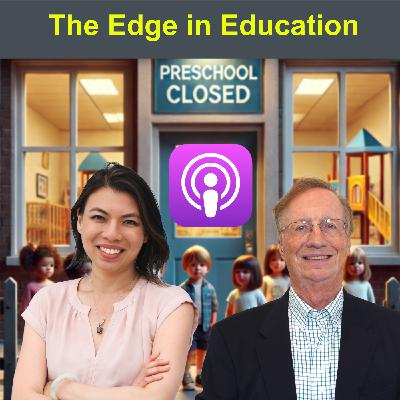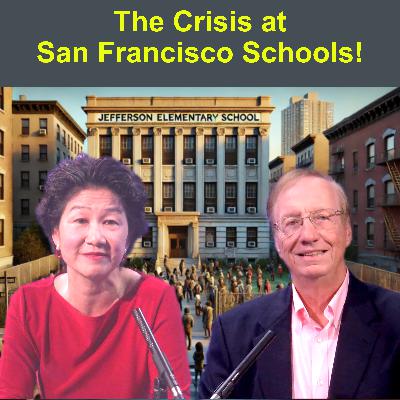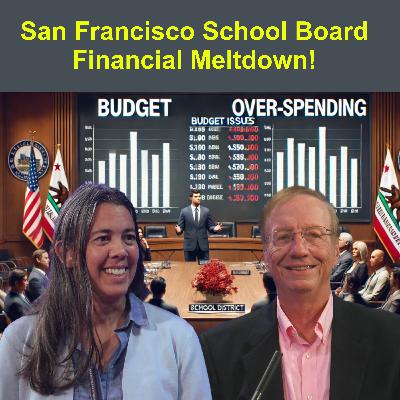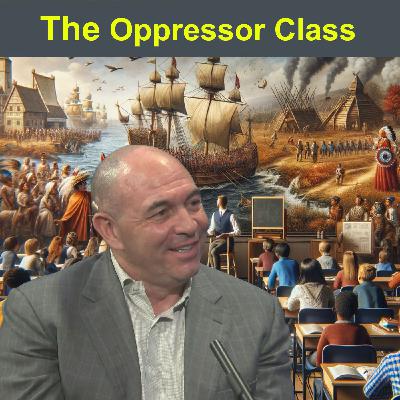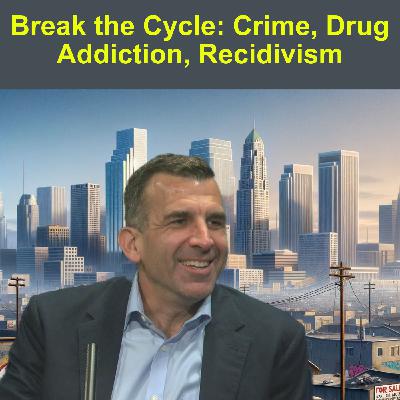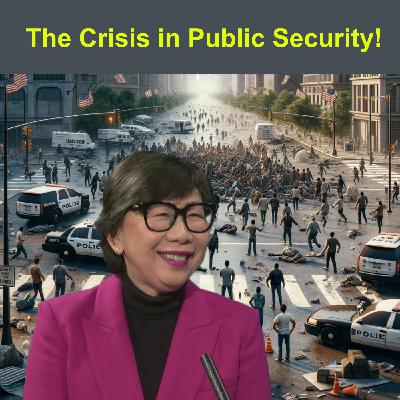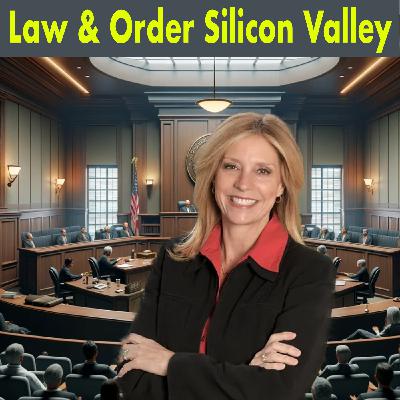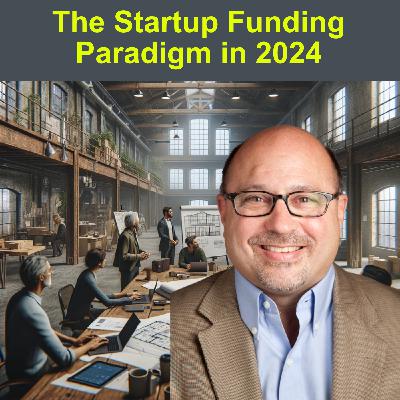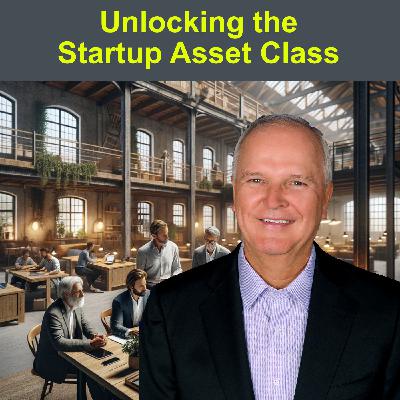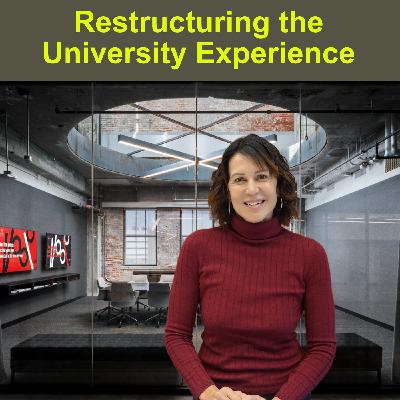Discover Game Changers Silicon Valley
Game Changers Silicon Valley

Game Changers Silicon Valley
Author: Jim Connor
Subscribed: 11Played: 177Subscribe
Share
Description
We tell the stories about the innovators of today who will be the Game Changers of Tomorrow. Our guests come from a wide range of backgrounds, including scientists, engineers, researchers, entrepreneurs, investors and educators.
70 Episodes
Reverse
Speaking with a tech entrepreneur in eastern Slovakia, just 100 miles from the Ukrainian border, we get insights into the original Declaration of Ukrainian Independence, the gradual move toward the West, statements about joining NATO and joining the European community. Adding fuel to the conflict, the eastern provinces of Ukraine are Russian-speaking and appear to have cultural ties to Russia. But now Russia has undertaken a devastating invasion, caused over 3 million refugees, and seems committed to destroying the country. My guest has relationships with Russia and Ukraine and has observed the growing conflict, the human suffering, and the loss of life. Join us in this podcast that concludes with a suggested "End Game" for Russia, the question of who will rebuild the country, and will Ukraine be able to recall its most capable and talented citizens from exile in European countries.
Never before have we had close-up access to personal stories, photographs, and videos showing the violence and destruction of war. But I did sense that part of the story was being overlooked. Ukraine has been transformed from the country it was 30 years ago when it gained independence from the Soviet Union. The country has built an impressive technology sector providing application development services and products which contribute to the employment opportunities for its citizens. So the question is: What is the perspective from the younger generation in Ukraine about the Russian invasion. This generation is connected to the global community via the internet, educated, and well informed. Many have not have lived under the rule of Russia. Information for Donations to Ukrainian Families: https://1Kproject.org
Today, the average life expectancy in the U.S. is 78 years. It's a remarkable achievement in light of the fact that the average life expectancy during the 18th and 19th centuries was less than 50 years old. Innovations in medical treatment, food production, and hygiene standards have all played a key role. However, the celebration of a longer average life span has been met with a sobering reality about the quality of those later years. There is a general acceptance that most of us will experience memory loss as a natural part of the aging process. Memory loss seems to start around the age of 55 years old, and it's a subtle condition that most of us will barely notice. Memory Loss can be the precursor to various forms of dementia, including Alzheimer's Disease. Currently, there is no effective medical treatment for memory loss. But there is a body of published research about how certain lifestyle choices will promote general good health and restrict memory loss. Today's discussion is about the causes of memory loss and what you can do to prevent the onset or slow its progression.
Measure A is being sold to Santa Clara County voters as a hospital funding initiative — but the fine print tells another story. In this episode of Game Changers Silicon Valley, host Jim Connor talks with David Johnson, chairman of the Santa Clara County Republican Party, about the widening gap between the county's public message and its fiscal reality. Johnson reveals how the county's healthcare budget has nearly tripled despite a shrinking population and explains why Measure A — a general tax increase with no spending guarantees — may do little to fix the system's inefficiencies. Together, they unpack the real numbers, political narratives, and what voters need to know before heading to the polls.
Every election cycle, there's one race that flies under the radar. In Santa Clara County, CA, we have an election that affects every homeowner, every taxpayer, and every senior ... that race is for County Assessor. This election has a special twist that one candidate, Rishi Kumar, who has taken a strong position against a sales tax increase referred to as Measure A. Join us to learn why a candidate of County Assessor is agains an increase in taxes.
Disruption isn't random — it follows patterns that can be seen, interpreted, and even anticipated. Yet most companies only recognize those signals after the market has already shifted. The organizations that thrive are the ones that develop the discipline to study weak signals — small but telling changes that reveal how markets or industries are about to evolve. These signals may come from unexpected places: a change in consumer behavior, a breakthrough in technology, or an overlooked data trend that quietly rewrites what's possible. Aaron Bradley and his team at the University of Cincinnati are helping companies move beyond reaction toward strategic foresight. Through innovative tools and collaborative methods, their program enables teams to explore how single events — or converging forces — can reshape entire industries. Rather than waiting for disruption to arrive, these teams define four primary outcomes, simulate each one, analyze its ripple effects, and identify new pathways for adaptation and growth. It's a shift from managing slow, evolutionary change to anticipating potential disruption. In this episode, we discuss how companies are tracking the signals of pending disruption to define the future rather than defend the past.
Virginia Cheung brings to the table not just policy ideas but personal stories that underscore the urgency of investing in the first five years of a child's life. With California spending billions on education and still falling behind, she asks a provocative question: Are we missing the most crucial years of a child's development? Cheung delves deep into the connection between a child's early environment and their long-term academic success. She argues that when children are exposed to stable family routines and communication tools—whether through language, art, or even sign language—it plants the seeds for lifelong success. Her stance on early literacy and behavior intervention emphasizing that a child's trajectory is often set long before kindergarten even begins.
I just sat down with Ann Hsu, a bold and fearless candidate for the San Francisco School Board, and let me tell you – this interview is unlike anything you've seen before. Ann doesn't mince words about the deep-rooted dysfunction plaguing our school district. From exposing how political ambitions have hijacked our children's education to sharing her no-nonsense strategies for restoring fiscal sanity and accountability, Ann delivers a candid, unfiltered take on the mess our public schools have allowed to become the norm. What makes Ann's journey even more compelling is her personal story as an immigrant. She experienced firsthand the transformative power of public education in America, and now she's on a mission to ensure that every student in San Francisco has the same opportunities. Her decision to start a nonprofit school after stepping down from the board underscores her relentless commitment to education. While others are content with the status quo, Ann is living proof of what it means to take action when the system fails. San Francisco voters face a pivotal decision this November. Do they want more of the same political maneuvering, or are they ready for a leader who brings a business-savvy, no-nonsense approach to turning this district around? Ann Hsu isn't just another candidate – she's a game-changer who won't stop until public education in San Francisco serves the people it's meant to serve.
The San Francisco school district is in the middle of a financial reckoning, forced to reconcile a significant drop in student enrollment with years of delayed responses to the growing operational costs. This isn't just a San Francisco problem—it's a glaring example of the challenges facing large school districts nationwide. Today's conversation centers on the hard truth: there simply aren't enough students to support the district's bloated infrastructure, and drastic measures are needed to avoid insolvency. In this episode, we dive into the heart of the matter with Supryia Ray, a candidate for the San Francisco School Board and a passionate advocate for real reform. The voters' response has been clear—they want a board made up of citizens who will make the tough calls to rebalance the budget, build a professional and capable teaching corps, and, most importantly, prioritize the needs of the students. This is a conversation not just about San Francisco, but about the future of public education across the nation.
California, once renowned for its high-performing public schools, is experiencing significant changes that raise concerns about the future of academic excellence. Notably, many high schools have eliminated honors and Advanced Placement classes, while some middle schools have stopped teaching Algebra in the 8th grade. A new state law mandates that all high school students must complete an ethnic studies course to graduate, aimed at enhancing cultural awareness and respect among diverse populations. However, the lack of a standardized curriculum has allowed for the introduction of "Liberated Ethnic Studies," which starkly categorizes students into groups of "oppressors" and "oppressed," based on race, creating a divisive and antagonistic classroom environment. My guests Diana Bloom and Christine Linnenbach, who bring their personal and professional experiences to the forefront of a pressing debate over the state's educational policies, including the controversial implementation of "Liberated Ethnic Studies" courses. Diana discusses the direct impact of these educational changes on her high school student, highlighting the embedded antagonism and the challenges it poses to the school community. Christine draws alarming parallels between the narratives pushed by "Liberated Ethnic Studies" and the racial doctrines of 1930s Germany, underscoring the dangers of such divisive educational frameworks. Their insights shed light on the growing discontent among parents and educators who are concerned with how these ideological teachings are influencing young minds and the broader social fabric.
Eli Steele's documentary, "Killing America," emerges from a profound silence into a loud, defining statement about the currents sweeping through American education. Born deaf, Steele transcends the boundaries of sound to explore the ideological framework shaping the narratives within schools across the nation. Through his lens, Steele investigates the dilution of meritocracy, the ascent of indoctrination, and the looming shadow of censorship, crafting a narrative that questions whether we are on the verge of educational decay or the brink of an academic renaissance. "Killing America" is not merely a film; it's an exploration into the origins of a divisive educational shift that categorizes students not by their achievements but by their racial identities. This shift from a focus on academic excellence to a binary of oppressors and oppressed has its roots in complex historical and social dynamics.
We share a highly visible, universal concern: the persistent cycle of crime, drug addiction, and recidivism. My interview with former San Jose Mayor and current Congressional candidate Sam Liccardo, provides a deeper insight into the pernicious nature of this cycle. Sam underscores the deep-seated connection between these elements, painting a picture of a cycle that perpetuates itself but believes it can be dismantled with strategic intervention. His insights, drawn from years in public service, propose a pivot from punitive to rehabilitative justice. At the core of Liccardo's argument is the significant overlap between the nonviolent prison population and substance addiction. He points out that over half of these inmates struggle with addiction, a factor often leading back to crime upon release. By reintroducing supervised release and frequent testing—a method proven successful in programs like Honolulu's Operation Hope—Liccardo believes we can break this cycle. Liccardo's philosophy extends beyond the prison walls to address homelessness, often intertwined with addiction. He advocates for focused mental health treatment, aiming to address both homelessness and its frequent companion, drug addiction. In essence, Liccardo's approach to crime, drug addiction, and recidivism offers a symbiotic solution. By treating the root causes rather than just the symptoms, he envisions a transformative change that could redefine public safety, social welfare, and fiscal policy within our communities.
Everyone agrees: We are witnessing unprecedented political polarization and deep divides tearing our country's fabric. Since the current leadership in Congress cannot come to terms, the voters have little option but to send a message by electing new representatives and senators to Congress. I had an opportunity to interview a newcomer in the upcoming primary elections in California. Peter Dixon has impressive international accomplishments, entrepreneurial experience, served as a marine in combat, and a common sense approach to addressing big issues. He believes in finding creative solutions to critical priorities and has persevered through some remarkably adverse experiences. We will discuss the big issues: Guns, border, immigration, and the national debt. Peter understands that solutions must go beyond party lines and believes it's a fundamental responsibility that unites us all. Peter might be the right person at the right time. I sensed a principle-based independent thinker during our interview. Join me in this interview and see if you find his approach refreshingly honest.
In the run-up to the 2024 elections, Anna Cheng Kramer, a candidate for California's 15th Congressional District, captures the quintessential American narrative of the underdog. The story of Anna Chang Kramer, who is vying for a congressional seat in California's 15th District, offers a unique insight into the immigrant experience. Kramer's narrative, which began in Taiwan, weaves through a background of finance, integrity, and a growing sense of public duty to the community. Kramer's campaign, anchored in enhancing public safety, speaks directly to the growing concerns among voters about crime and support for law enforcement. In a landscape where safety and justice are in the balance, her perspectives offer a clear vision for policies that strive to protect and serve the community equitably. These challenges, as Kramer outlines, demand not only strong leadership but also a thoughtful re-evaluation of current legislation. Kramer's viewpoints on fiscal responsibility, immigration reform, and the quest for economic prosperity emerge as pivotal discussions. Her approach to these concerns reflects a deep understanding of the community's heartbeat and the need for leadership that can navigate the complexities of modern governance.
No one wants to admit they are being treated for depression, bi-polar disorder or having thoughts about suicide. The fact is, today's stressful lifestyles will overwhelm the coping mechanisms of many people. My guest believes it's time to remove the stigma and treat mental illness "just like any other disease." Homeless encampments in commercial districts remain a visible and complex challenge. My guest, Dr. Peter Fund, provides insights about the extent of mental illness among the homeless. Government officials appear unable to formulate a plan to address what appears to be a broader health crisis that extends beyond the scope of traditional medical care. Voters have voiced their dissatisfaction with these encampments, which reflects both a deep-seated concern for the welfare of the homeless population, safety concerns, and the health of the community at large. The responsibility for addressing this issue has often been shuffled between state and local governments, yet the onus lies heavily on county governments such as the Santa Clara County Board of Supervisors. Dr. Fung is seeking to be elected to this Board, serving the community by implementing effective healthcare policies. He has a stated focus on tackling the mental health crisis and his intent is to replicate the stroke emergency system for mental health emergencies. Dr. Fung provides a qualified perspective on how the County could catalyze a more proactive approach to mental health.
In today's blog, we delve into the critical role judges play in our justice system. We had the privilege of speaking with Johnene Stebbins, a seasoned deputy district attorney running for Judge in Santa Clara County. Join us as we explore the responsibilities and challenges judges face in maintaining fairness, integrity, and public safety. We discuss the correlation between the decriminalization of drugs and the rise in homelessness. Drawing insights from our conversation with Joanne Stebbins, we explore the challenges faced by local governments in addressing this complex problem.
In 2023, approximately 3,200 venture-backed firms in the U.S. went out of business, according to data from PitchBook. These startups had collectively raised about $27.2 billion. Since the failure of Silicon Valley Bank in March 2023, this situation has been described as the most difficult year for startups in at least a decade, with many companies quietly shutting down. So the question is: What is taking place in the early-stage investor community to navigate this re-defined landscape? Is it business as usual or is there a new investor emphasis on quantitative tools to make better decisions on sustainable business models
Three Key Steps in Constructing the Startup Asset Class One fundamental building block to startup investing is defining the sectors and technologies that will fit your organization's definition of a startup asset class. A second critical step involves creating an education program to explain the purpose, risks, diversification, time horizon, and expected returns in a portfolio of early-stage technology companies. But what can catalyze the growth of your startup investing and the ecosystem is tapping into state funding to support innovation and economic development. But as many angel investor groups have discovered, it's not as straightforward as it seems. Among the challenges, you will need to identify the appropriate channels, define clear strategies, and maintain effective oversight. We're not just talking about funding here; we're discussing the art of kindling an entrepreneurial spirit that can sustain and grow an ecosystem. In this podcast, we review how the Queen City Angels partnered with the Ohio Third Frontier Program to support the growth of a vibrant startup community. Local universities, such as the University of Cincinnati, and public corporations, such as Kroger, Proctor & Gamble, and Fifth Third Bank, made major commitments to the support and vitality of the startup community.
Universities face many challenges in their goal of educating students for engagement in the 21st century economy. In this podcast, we delve into this transformative shift in academia, where the traditional model of university education is being reimagined and revitalized. The University of Cincinnati is at the forefront of this educational revolution, fostering an environment where academic knowledge meets practical application and where failure is viewed not as a setback but as a critical component of learning and innovation. My guest is Kate Harmon, the Executive Director at the Center of Entrepreneurship. Kate discusses the strategies the University of Cincinnati employs to transform traditional academic education into an experiential journey that prepares students for the realities of the innovation-driven world.
A Crusade for Justice Imagine inheriting your family home, only to find a tax bill that forces you to sell. It's not fiction; it's the startling reality under California's Proposition 19. In this episode, we uncover how this law is upending lives and what's being done to challenge it. Meet Gina C. Louis, our advocate guest driving the charge against this controversial law. Her analysis and expertise shed light on a situation that's more than just numbers – it's about preserving the inheritance structure and legacy of the family home.


